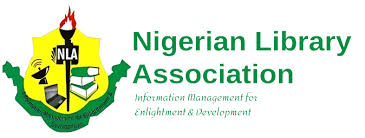Nigerian Library Association (NLA) has urged libraries across the country to adopt hybrid platforms that integrate both physical and virtual services to address the evolving needs of users in the digital age.
This call was made in a communiqué issued at the close of the 63rd Annual National Conference and General Meeting of the association, held in Benin, Edo State.
The communiqué, signed by Dr Dominic Omokaro, President and Chairman of Council of the association, was made available to StarReporters on Wednesday.
Omokaro noted that the conference was themed “The Fifth Industrial Revolution and the Future of Library and Information Service Delivery in a Changing World.”
He explained that the Fifth Industrial Revolution (5IR) prioritises the fusion of cutting-edge technology with human-centred values.
He therefore emphasised the need for libraries to strike a balance between technology and human service by fostering empathy, ethics, and personalised service delivery to ensure inclusive and relevant access.
“There is an urgent need to re-skill and up-skill librarians and information professionals in areas such as digital literacy, data science, artificial intelligence (AI), robotics, blockchain, and human-machine collaboration,” he said.
He added that this would ensure that librarians remain competitive and impactful in their roles. Library and Information Science (LIS) educators, he said, should take advantage of the 30 per cent curriculum flexibility within the Core Curriculum Minimum Academic Standards (CCMAS) to embed 5IR-aligned courses that reflect global LIS developments and future skills.
“Libraries must promote inclusive and equitable access by adopting emerging technologies such as Virtual Reality (VR), Machine Learning, Internet of Things (IoT), and assistive technologies. This should be done to bridge the digital divide and serve marginalised communities effectively,” he stated.
The NLA president further recommended a review of the National Library Policy to reflect the realities of the digital age and reposition libraries as catalysts for national innovation.
He also encouraged institutions to dedicate at least 50 per cent of their TETFund allocations to the integration of 5IR tools and the modernisation of library infrastructure and services.
Omokaro called on federal and state governments, along with key education stakeholders, to prioritise education, research, and access to information as critical elements for achieving sustainable development.
(NAN)


